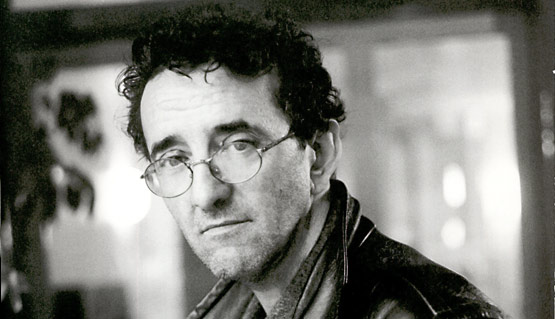In the early ’90s, the Jesus Lizard—vocalist David Yow, guitarist Duane Denison, David Wm. Sims and drummer Mac McNeilly—was untouchable. Not literally, of course—if you were at one of its hundreds of shows in that era, you could very easily touch ’em. And given the amount of time Yow spent slithering on top of the audience, you probably didn’t have a choice in the matter. Denison and McNeilly will be guest editing. Read our new MAGNET Classics feature on the band’s Liar album, one of the most important LPs of the ’90s.

Denison: Roberto Bolaño. Yes, I know you can’t really be “contemporary” when you’ve been dead nearly 10 years. And yes, I know, he’s become fairly popular among people who read modern novels. But I’m gonna talk about him anyway. Not as terse as DeLillo, nor as smug as Amis. Never as whimsical as Murakami. Bolaño was the best writer of them all. Expansive and intimate, dirty and pristine, original yet familiar. I’m no expert, in fact I’m not worthy to really judge any of these men of letters. But with The Savage Detectives and the sprawling 2666, you get to hear the voice of someone who knows he only has so much time left. He bristles with energy and with contempt for other writers who haven’t lived as hard or with as much gusto as himself. His characters often sneer at other writers much in the way that musicians often hold each other in disdain. A few years ago, I was in Madrid (or was it Barcelona? How could I confuse them?) on tour. I was hanging outside the venue after the show in the temporary community of smokers. I found myself chatting with a small group of guys who seemed like exact replicas of the Visceral Realists of The Savage Detectives. They were aloof, not terribly cordial and not impressed by my being familiar with our Mr. Bolaño. In fact, the very idea that I, an American musician, was a fan of his was proof to them that Bolaño had become a celebrity not unlike the other literary stars of the Latin world: your Márquez, your Borges, even your Cervantes (who no one really reads, do they?). In other words, to them he had become the very thing he despised. I disagreed, and continue to do so. No modern artists of any kind creates their art without being at least somewhat aware of their place in the world. You can say you don’t care about the money, but no one goes through the trouble of writing, rewriting, editing, etc. without being concerned about the effect the artifact will have—whether on critics and fellow artists or on fans such as myself. To suggest otherwise is ignorant, and to place my enjoyment and knowledge of someone’s work as an example of that artists’ mediocrity is insulting. I’d like to think Mr. Bolaño would’ve been happy to see someone like me reading one of his books. Anyone who disagrees shall face me at dawn with pistols drawn.






